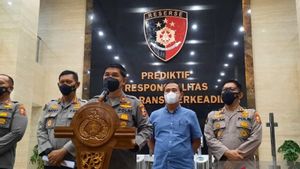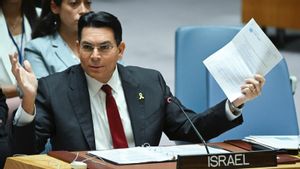JAKARTA - The government has opened a discourse regarding the fourth dose of COVID-19 booster vaccination. This discourse raises questions. Does Indonesia need the fourth dose of vaccine injection? How big is the urgency?
Let's look at the data first. Seen in the dashboard of national vaccination data as of February 24 with a cut off at 18.00 western Indonesia time, the coverage of the first dose of vaccination reached 109,310,509 doses or 91.38 percent of the vaccination target.
Then, the second dose reached 142,517,246 doses or 68.43 percent of the target. The second dose reached 9,236,089 doses or 4.43 percent of the target. Meanwhile, the target for vaccination in Indonesia is 208,265,720 people.
If we dissect by province, it turns out that there are still more provinces where the primary vaccination achievement (first and second doses) is within the national vaccination achievement rate.
In the first dose, there are still 24 provinces whose vaccination achievement is below the national figure, with the 5 lowest provinces namely Papua (31.38 percent), West Papua (58.59 percent), Maluku (68.35 percent), West Sulawesi (75 percent). .44 percent), and North Maluku (79.99 percent).
While in the second dose, there are still 25 provinces whose vaccination achievement is below the national figure, with the 5 lowest provinces namely Papua (22.75 percent), Maluku (38.82 percent), West Papua (39.06 percent), North Maluku ( 43.25 percent), and West Sulawesi (45.45 percent).
An epidemiologist from Griffith University Australia, Dicky Budiman views that currently, Indonesia does not require the use of the fourth dose of vaccination.
VOIR éGALEMENT:
"When it comes to the fourth dose, this is certainly not a priority for the population. Talking about the fourth dose, this is also the scientific basis that has not shown a significant difference with the third dose," said Dicky when contacted by VOI, Friday, February 25.
If the discourse of the fourth dose of vaccination in the near future is aimed at the target of health workers, that's okay. Given, they are the group most vulnerable to being exposed to COVID-19.
However, for the entire population in Indonesia, this fourth dose booster vaccination is not yet necessary. Moreover, the achievement of primary vaccination in many provinces has not yet touched the level of immunity. Moreover, the third dose whose coverage is still below 5 percent.
"We have to go after the second and third doses first, we're afraid we won't catch up. Because the number of vaccinators is limited. I'm afraid that if the fourth dose is running, it will become a potential danger. Many victims will be exposed because the second dose has not been caught," explained Dicky. .
For this reason, continued Dicky, the government must rack its brain in carrying out vaccinations in order to be able to pursue the herd immunity target. Moreover, there are millions of people who have not been vaccinated for the second dose more than 6 months since the first dose. They also have to be re-vaccinated.
"This method must be closer to the community. For example by using mobile clinics, door to door, or involving other partners. The problem must also be that this must be accompanied by vaccine literacy. Providing understanding to the community is not easy," he said.
Previously, Deputy Minister of Health (Kemenkes) Dante S. Harbuwono said the administration of the fourth dose booster vaccine for all residents in Indonesia was still being evaluated and reviewed by the government.
"If later it is necessary with studies that we continue to evaluate and it turns out that we need a fourth reinforcement, then it is not impossible that the fourth amplifier will be carried out," said Dante, some time ago.
The English, Chinese, Japanese, Arabic, and French versions are automatically generated by the AI. So there may still be inaccuracies in translating, please always see Indonesian as our main language. (system supported by DigitalSiber.id)











